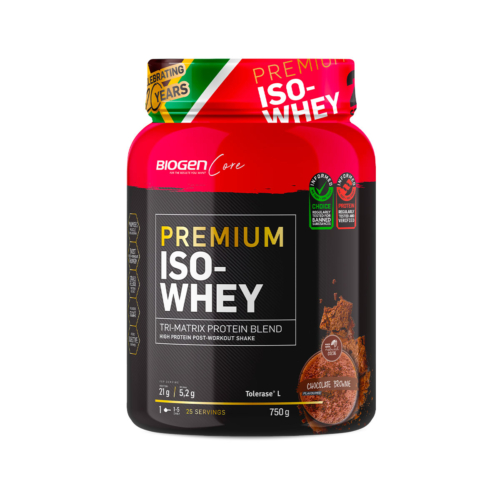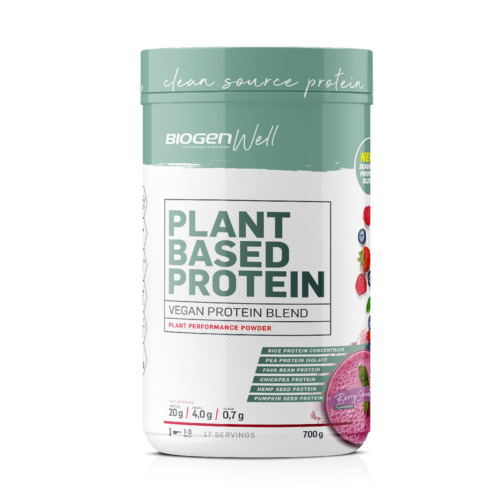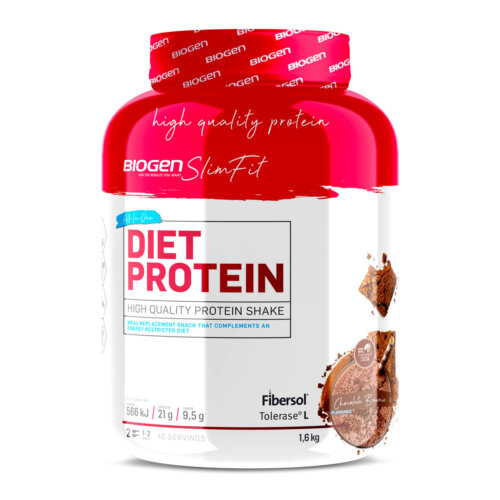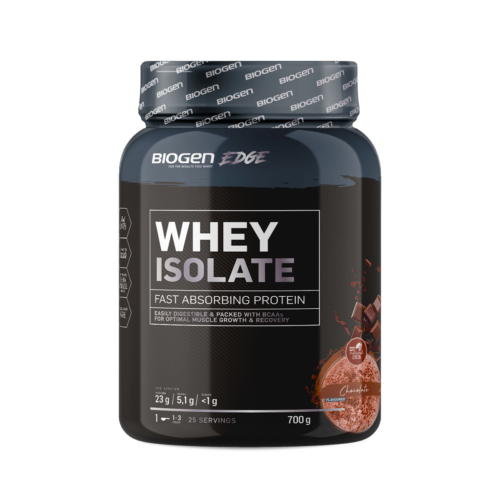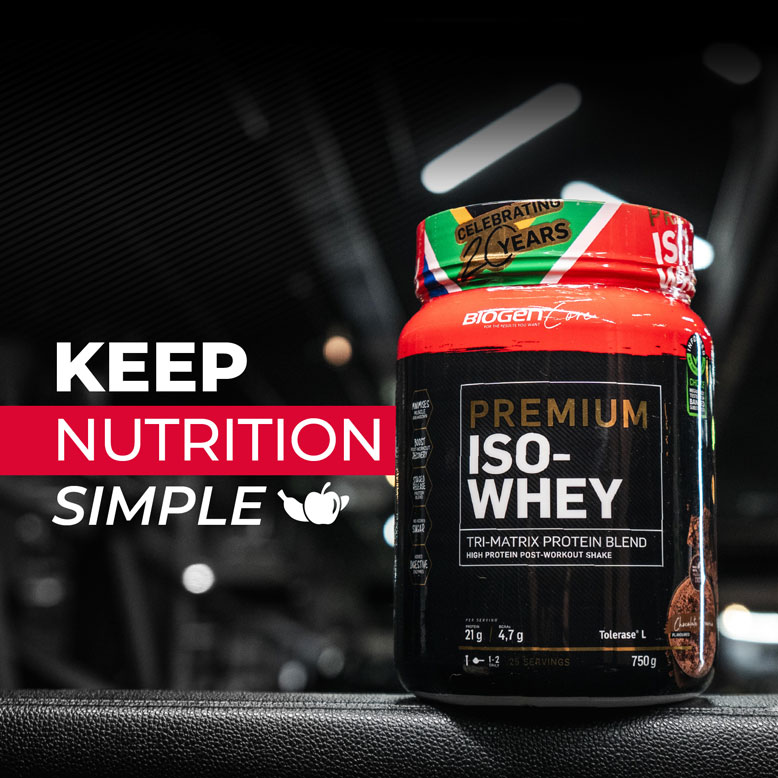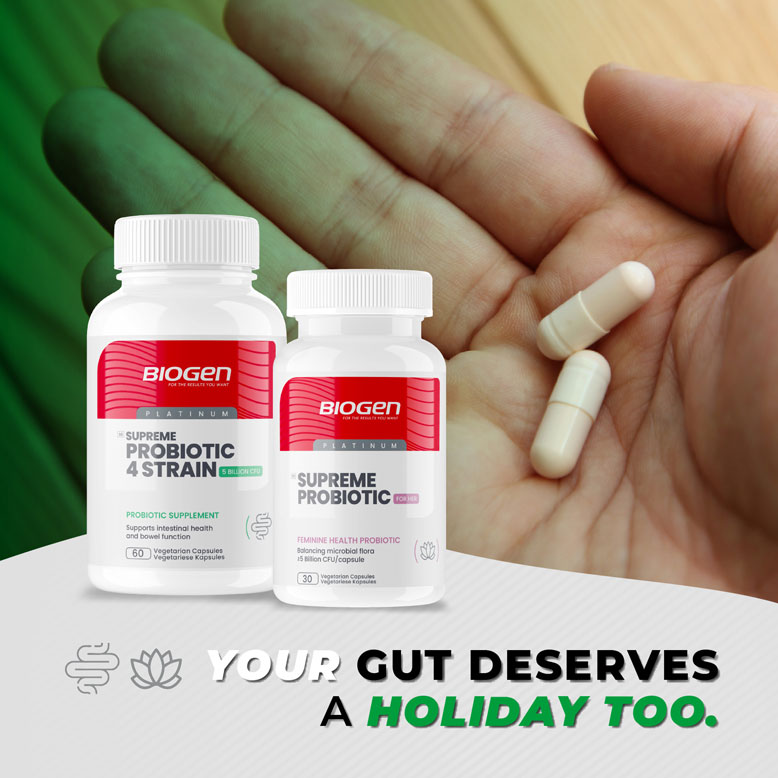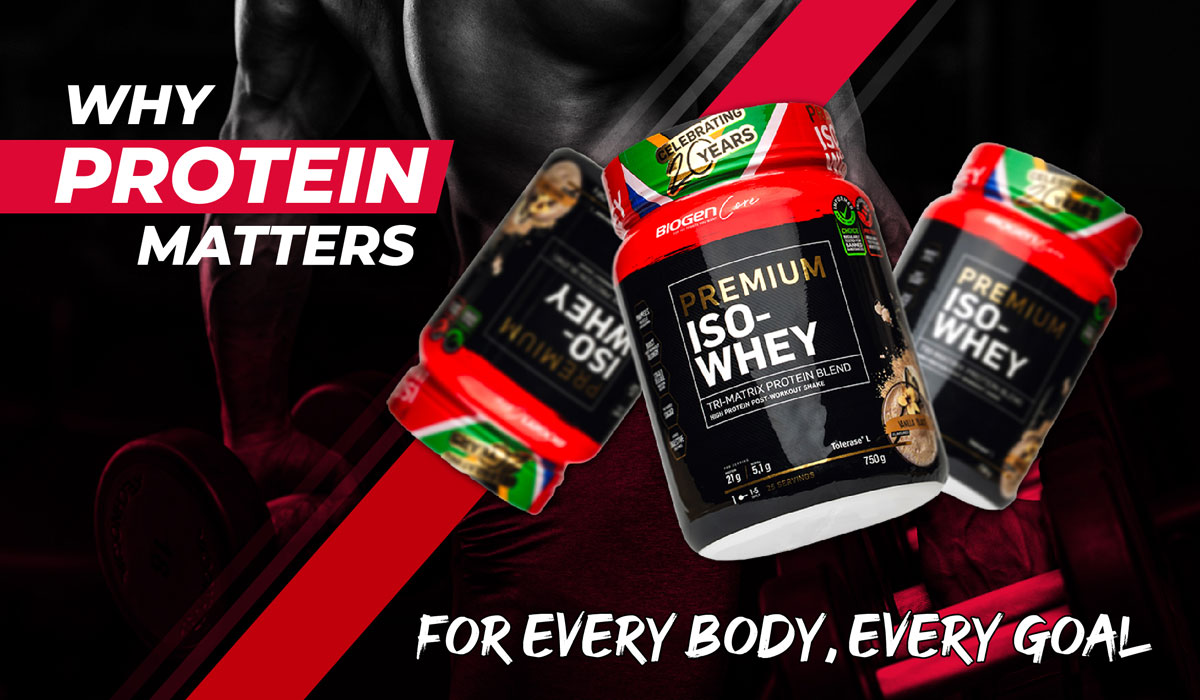
Exploring the Importance of Protein for Strength, Recovery, and Everyday Wellness
Proteins are known as the building blocks of life because they play a vital role in nearly every biological process in the body.
Every cell in the human body contains proteins, forming the main components of muscles, bones, organs, skin, and blood.
They are also involved in critical processes, like tissue growth and repair, enzyme production and function, metabolism regulation, immune response, and energy production.
Each protein in the body also has a specific function and varies in structure – enzymes, muscle tissue, hormones and antibodies are all examples of different proteins produced in the body from the proteins we ingest.
It’s all about amino acids
All proteins are constructed from a set of 21 amino acids, eight of which are deemed essential because the body cannot produce them. That’s why we need to supply them with food and supplements.
Animal protein sources, such as beef, poultry, fish, venison, lamb, pork, eggs and dairy are considered complete proteins because they contain all eight essential amino acids.
Plant-based protein sources are generally incomplete proteins as they contain some but not all essential amino acids. For this reason, vegans and vegetarians must consume a variety of protein sources to meet their body’s needs.
We can combine incomplete proteins to create a complete amino acid profile (known as complementary proteins), which is what supplement manufacturers do when developing their products.
How much do you need?
The minimum recommended daily allowance (RDA) of protein required to meet our basic nutritional needs is 0.8 grams of protein per kilogram of body weight per day (g/kg/d)¹.
However, research² confirms that this “just isn’t enough” for athletes and active individuals, especially older adults, and recommends a maximum amount of 1.6g/kg/day to build and maintain muscle. Athletes like bodybuilders or weightlifters may need even more, with studies³ recommending an upper limit of 2.2g/kg/day.
Timing your intake
When it comes to the best time to consume protein, your body is most receptive to amino acids (and the glucose needed to replace depleted glycogen stores) directly after exercise due to heightened insulin sensitivity.
However, consuming sufficient protein any time in the 24 hours after a workout will support growth and recovery.
Protein differences
When it comes to the right protein source to support your nutritional and biological needs, it is important to understand that not all protein is created equal.
Bioavailability is a measure of how quickly the body can digest and absorb protein. A key metric used to quantify protein bioavailability is biological value (BV).
It is calculated by comparing the nitrogen retained in the body from a protein source to the nitrogen consumed. A higher biological value indicates a more efficient protein source, which typically supplies all the essential amino acids (EAAs) that your body can’t produce on its own.
Animal proteins typically have a higher BV than plant sources due to the lack of one or more EAAs in plant-based proteins, and the fibre in plant-based sources, which can slow digestion. The BV of common protein foods and supplements⁴ include:
- Whey protein: 104
- Eggs: 100
- Milk: 91
- Fish: 80
- Chicken: 75-80
- Red meat: 70-80
- Soy protein: 74
- Quinoa: 70
- Chia seeds: 68
Whey achieves slightly better nitrogen retention than soy or casein, likely due to its high EAA content, especially leucine⁵.
Protein supplements
Biogen produces a range of supplemental protein options to cater to various needs and preferences, with whey and plant proteins the most popular.
Trust your protein product
Whatever protein supplement you choose, it is vital to know what’s listed on the label is what you’ll find inside the tub and only those ingredients. When it comes to protein, quality also matters.
Everyone from athletes to the elderly deserves peace of mind when including supplements in their daily routine, which is why Biogen is committed to providing products of the highest quality and goes to great lengths to ensure that products comply with the absolute best standards possible.
These measures include voluntarily enrolling in the globally recognised Informed Protein programme, with Biogen Iso-Whey Premium Protein the first product in the range to receive the industry-leading certification.
Making informed choices
In response to rising demand for quality-assured products, LGC ASSURE, a global leader in the life science tools sector, has added the Informed Protein certification to its established Informed Sport, Informed Choice, Informed Ingredient, and Informed Manufacturer programs.
Informed Protein is a global protein testing and verification program developed to verify the amount of protein in supplement products to give athletes and consumers greater confidence in their preferred brands.
Established by LGC, all certified products undergo analysis for free amino acids by LGC’s world-renowned laboratories using ISO 17025 accredited methods as well as a detailed manufacturing audit.
Certified products are also assessed for their total nitrogen content and are evaluated for their carbon/nitrogen ratio to ensure batch-to-batch consistency. Once products are certified, they will be regularly tested through blind sampling.
Protein supplements tested and certified by Informed Protein will carry the Informed Protein logo on product packaging stating they are regularly tested.
The presence of the Informed Protein logo gives supplement users assurance that the product label claims have been verified independently, which means the amount of protein listed on the packaging is what you get in the tub.
For more information on Informed Protein, visit informed-protein.com.
References:
- Beasley JM, Deierlein AL, Morland KB, Granieri EC, Spark A. Is Meeting the Recommended Dietary Allowance (RDA) for Protein Related to Body Composition among Older Adults?: Results from the Cardiovascular Health of Seniors and Built Environment Study. J Nutr Health Aging. 2016;20(8):790-796. doi: 10.1007/s12603-015-0707-5. PMID: 27709227; PMCID: PMC5348248.
- Morton RW, Murphy KT, McKellar SR, Schoenfeld BJ, Henselmans M, Helms E, Aragon AA, Devries MC, Banfield L, Krieger JW, Phillips SM. A systematic review, meta-analysis and meta-regression of the effect of protein supplementation on resistance training-induced gains in muscle mass and strength in healthy adults. Br J Sports Med. 2018 Mar;52(6):376-384. doi: 10.1136/bjsports-2017-097608. Epub 2017 Jul 11. Erratum in: Br J Sports Med. 2020 Oct;54(19):e7. doi: 10.1136/bjsports-2017-097608corr1. PMID: 28698222; PMCID: PMC5867436.
- Arash Bandegan, Glenda Courtney-Martin, Mahroukh Rafii, Paul B Pencharz, Peter WR Lemon, Indicator Amino Acid–Derived Estimate of Dietary Protein Requirement for Male Bodybuilders on a Nontraining Day Is Several-Fold Greater than the Current Recommended Dietary Allowance12, The Journal of Nutrition, Volume 147, Issue 5, 2017, Pages 850-857, ISSN 0022-3166,
https://doi.org/10.3945/jn.116.236331. - Hoffman JR, Falvo MJ. Protein – Which is Best? J Sports Sci Med. 2004 Sep 1;3(3):118-30. PMID: 24482589; PMCID: PMC3905294.
- Moore DR, Soeters PB. The Biological Value of Protein. Nestle Nutr Inst Workshop Ser. 2015;82:39-51. doi: 10.1159/000382000. Epub 2015 Oct 20. PMID: 26545252.


